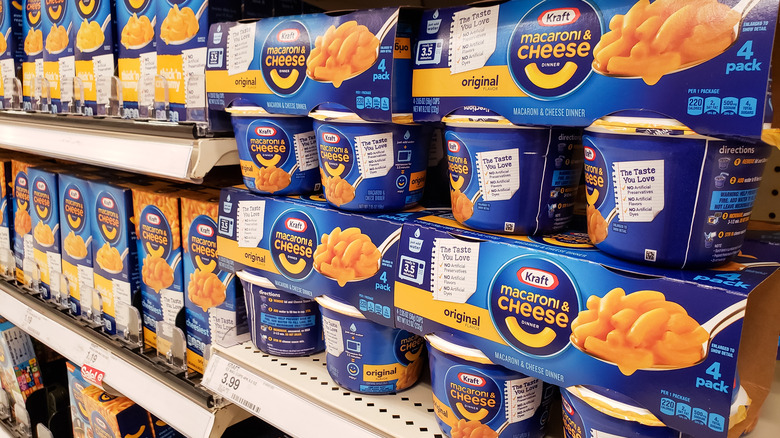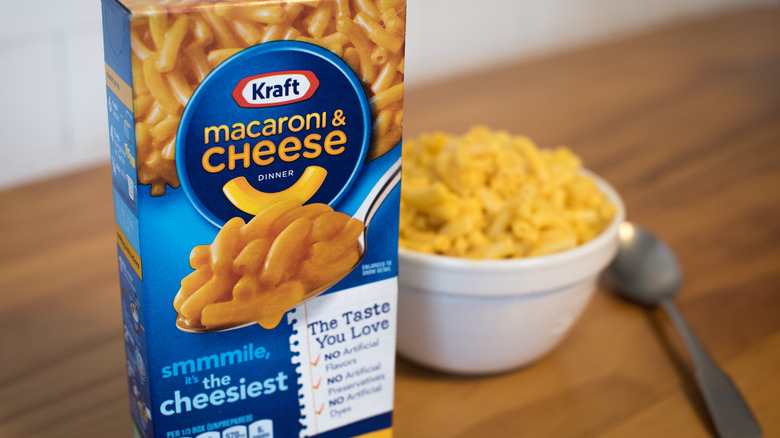The Shady Business That Used To Be Behind Kraft Foods
You shouldn't sell cigarettes to children. But if you primarily sell cigarettes, you should try expanding your portfolio to include mac and cheese. That's what Altria Group, which was once known as Marlboro cigarette company Philip Morris, did between 1988 and 2007.
As The Motley Fool reports, Altria actually bought General Foods in 1985 because rival cigarette maker Reynold's American had acquired Nabisco. Then, having acquired some food business experience, they decided to invest further in the market and bought Kraft three years later. This arrangement continued into the 2000s, when Altria began to sell some shares before spinning off the company in its entirety in 2007. During their relationship, nothing overtly shady seems to have occurred, other than the fact that both companies sell products that can be detrimental to public health.
In an interview with NPR, Kraft CEO Irene Rosenfeld explained that the split would allow Kraft to pursue opportunities that being a subsidiary had blocked off. In no way was this a move against the possibility that Kraft would end up losing money to pay off various tobacco lawsuits on the behalf of Altria Group. Nor did the spin off seem to indicate that Kraft would pursue healthier options because, as Irene Rosenfeld put it, "...nobody is willing to trade off the great taste of the food that they're eating for the benefit of having some other nutritional properties..." The only reason, then, that Kraft is less shady now is because it is no longer covered in tobacco smoke.
The current shady owner of Kraft
Kraft remained an independent company for less than 10 years before merging with Heinz. As The Guardian reported, Kraft Heinz was the result of a $63 "mega-merger" and consolidated the food industry into only a handful of companies.
According to Green America, the monopoly that Kraft Heinz helped create means that only six or seven groups effectively control everything we eat. They control the supplies of what is available and, more importantly, have their hands on the grocery bill for millions of people.
General monopolistic shade aside, however, another shady aspect of Kraft Heinz came to light in 2019. According to Reuters, to address the revenue lost due to a greater desire for healthy eating, Kraft Heinz turned to making profits by cutting costs in a practice called zero-based budgeting. "To catch up with the shift of consumer demand for better-for-you and sustainable food, you have to innovate," the "head of investment at a European consulting firm" told Reuters. "And to innovate you simply can't use ZBB." Fortunately for Kraft Heinz, a pandemic happened, so the consumers they lost to health trends may have trickled back for some comfort food.

